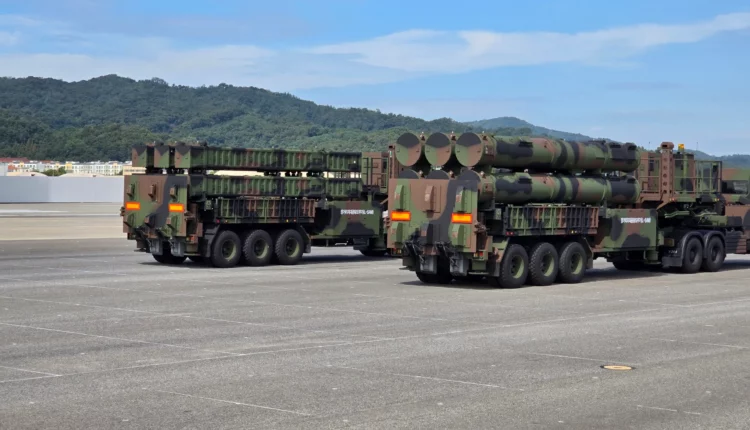©2021 Reporters Post24. All Rights Reserved.
South Korea has officially completed the development of its homegrown Long-range Surface-to-Air Missile (L-SAM) system, the country’s defense ministry announced on Friday.
The development marks a significant step forward in enhancing South Korea’s air defense capabilities, particularly in response to the growing missile and nuclear threats posed by North Korea.
A ceremony to celebrate the completion of the L-SAM was held at the Agency for Defense Development (ADD) in Daejeon, located approximately 140 kilometers southeast of Seoul. The event was attended by senior defense officials, including Defense Minister Kim Yong-hyun, who highlighted the importance of the new missile defense system for national security.
“Even if North Korea attempts a missile provocation, the North cannot penetrate our military’s sturdy defense system,” Kim said during his address at the ceremony. “It will have to pay a price, the ‘end of its regime,’ which is bigger than what it gets through provocation.”
The L-SAM system is designed to intercept incoming threats at altitudes above 40 kilometers. According to the defense ministry, while specific operational details were not disclosed, it is understood that the L-SAM can engage targets at altitudes ranging from 50 to 60 kilometers. This capability is intended to work within a multi-layered defense strategy, complementing existing systems such as the U.S.-made Patriot Advanced Capability-3 (PAC-3) and the M-SAM II air defense systems, which can intercept targets at altitudes of up to 40 kilometers.
With the successful development of the L-SAM, South Korea plans to begin production next year, with deployment to the military scheduled for the mid-to-late 2020s. Once deployed, the L-SAM will play a crucial role in South Korea’s Korea Air and Missile Defense (KAMD) system, which aims to create a comprehensive shield against missile threats.
KAMD is one component of South Korea’s broader three-axis defense strategy, which also includes the Kill Chain preemptive strike platform and the Korea Massive Punishment and Retaliation (KMPR) system. While Kill Chain and KMPR focus on offensive capabilities, KAMD, with the L-SAM as a key component, provides a strong defensive framework for the protection of South Korean territory.
The military is also working on a Block-II version of the L-SAM, which will be capable of intercepting targets at even greater altitudes than the current system. This next-generation version is expected to further enhance South Korea’s ability to protect against evolving aerial threats.
The completion of the L-SAM system development comes at a time of heightened tensions on the Korean Peninsula, with North Korea continuing to test missiles and advance its nuclear capabilities.


